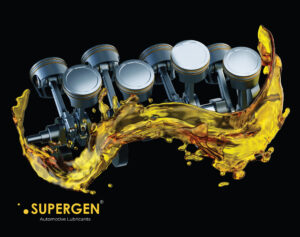Engine oil is one of the most important components of an engine. It lubricates the internal parts of the engine and prevents wear and tear caused by friction. It also protects the engine from rust, corrosion and other contaminants. Thus, it is clear that engine oil is essential to the smooth running of the engine. However, not all engine oils are the same. Engine oil is divided into different grades based on the viscosity of the oil. Since viscosity or thickness levels change according to the temperature, the grades are expressed as a range, with thickness levels being indicated for hot as well as cold weather. For the Hyundai i20 diesel engine, the recommended engine oil grade, as per the owner’s manual is 5W-40.
What is the oil capacity of Hyundai i20?
Each car has a unique design for its engine. This not only depends on the make and model of the car and the company, but also the type of car and what it is meant for. Similarly, whether a car is petrol or diesel run, also affects the specifications of the engine. As mentioned before, engine oil is an essential component of any engine and it is impossible for a car to run smoothly without engine oil. Engine oil changes should be regularly done with the servicing of the car. However, along with knowing which type of engine oil to put, car owners should also know how much oil their car needs. The volume of engine oil that the engine requires is called the oil capacity of the car, and it is different for different models. The owner’s manual always specifies the oil capacity of the engine, which should be understood by all car owners. For the Hyundai i20 diesel car, the oil capacity of the engine is 4 litres.
Is synthetic oil better than conventional one?
There are three main types of engine oils i.e. conventional oil, semi-synthetic oil and synthetic oil. Conventional oil or mineral oil, is crude oil that is refined to a minimum, that is used as engine oil. Since it is not very refined, it is not very long lasting and needs to be changed often. Similarly, it does not provide high quality of protection and lubrication as compared to the others. Synthetic engine oil, on the other hand, is the complete opposite, since it is the most advanced technology and is manufactured fully in the lab. It is refined on a molecular level, thus engineered for maximum protection and superior lubrication. Similarly, it has a lot of additives that make it long lasting and effective. Semi-synthetic is a blend of the other two types of oils. Since synthetic oil is clearly a superior and advanced technology, it is widely accepted as the best type of engine oil for all kinds of modern engines. After synthetic oil, semi-synthetic comes next in terms of quality, with mineral oil being the least effective of the three.
What are the disadvantages of synthetic oil?
As mentioned earlier, synthetic oil is the latest technology in the automobile industry. It is an engine oil engineered fully in the laboratory and is therefore customised to last longer, offer better protection as well as lubrication. However, there are still two major disadvantages to synthetic oil. Firstly, since it is the most advanced oil, it is significantly more expensive than conventional or semi-synthetic oil. However, since synthetic oil also does not need to be changed as often as the other two, in the long run, using synthetic oil is not that much costlier than using the others. Secondly, synthetic oil is prone to additives precipitation during cold storage conditions, meaning that there are chances of the additives separating from the oil, since synthetic oil has more additives than conventional oil.
However, this issue can also be avoided by storing the oil is appropriate temperatures and exposing it to too much cold.









